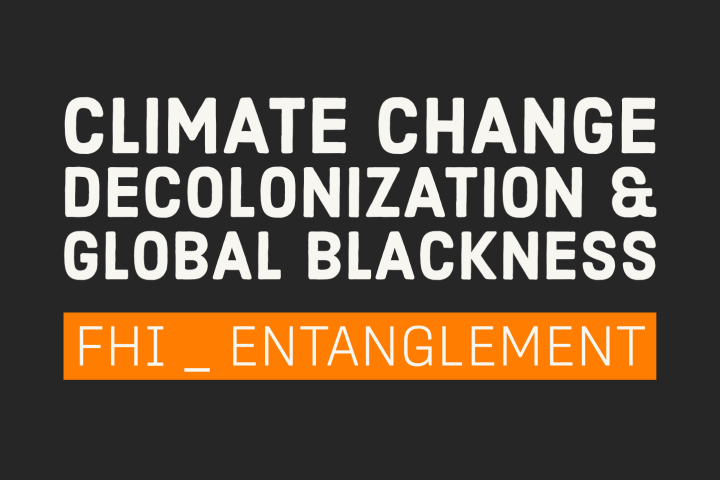[CANCELLED] After the End of the World: Entangled Nuclear Colonialisms, Matters of Force, and the Material Force of Justice

Please join the Climate Change, Decolonization, and Global Blackness Lab (CCDGB) at the John Hope Franklin Humanities Institute for our 2022-23 speaker series. CCDGB is part of The Entanglement Project, a new FHI initiative focused on the intersections of race, health, and climate.
Most talks are hybrid:
- In-person registration (w/ COVID safety info): https://duke.is/yc4gm
- Zoom registration: https://duke.is/rcjhw
The CCDGB speaker series is co-sponsored by the Nicholas Institute for Energy, Environment & Sustainability and the Nicholas School of the Environment.
The Marshall Islands are at the crossroads of two great destructive forces: nuclear colonialism and the climate crisis. In the aftermath of sixty-seven US nuclear bomb "tests" visited upon the Marshall Islands, the concrete "dome" built on Runit Island by the US government was an act of erasure and a-void-ance - an attempt to contain and cover over plutonium remains and other material traces of the violence of colonial hospitality that live inside the Tomb (as the Marshallese call it). Taking the physicality of the hostility within hospitality seriously, and going into the core of the theory that produced the nuclear bomb, I argue that a radical hospitality - an infinity of possibilities for interrupting state sanctioned violence - is written into the structure of matter itself in its inseparability with the void.
Philosopher, physicist, and feminist scholar, Karen Barad is Distinguished Professor of Feminist Studies, Philosophy, and History of Consciousness at the University of California at Santa Cruz. Barad held a tenured appointment in physics before moving into more interdisciplinary spaces. Particularly known for the theory of agential realism, Barad is the author of Meeting the Universe Halfway: Quantum Physics and the Entanglement of Matter and Meaning (Duke University Press, 2007) and numerous articles in the fields of physics, philosophy, science studies, poststructuralist theory, and feminist theory. Barad's research has been supported by the National Science Foundation, the Ford Foundation, the Hughes Foundation, the Irvine Foundation, the Mellon Foundation, the Fulbright Foundation, and the National Endowment for the Humanities.







